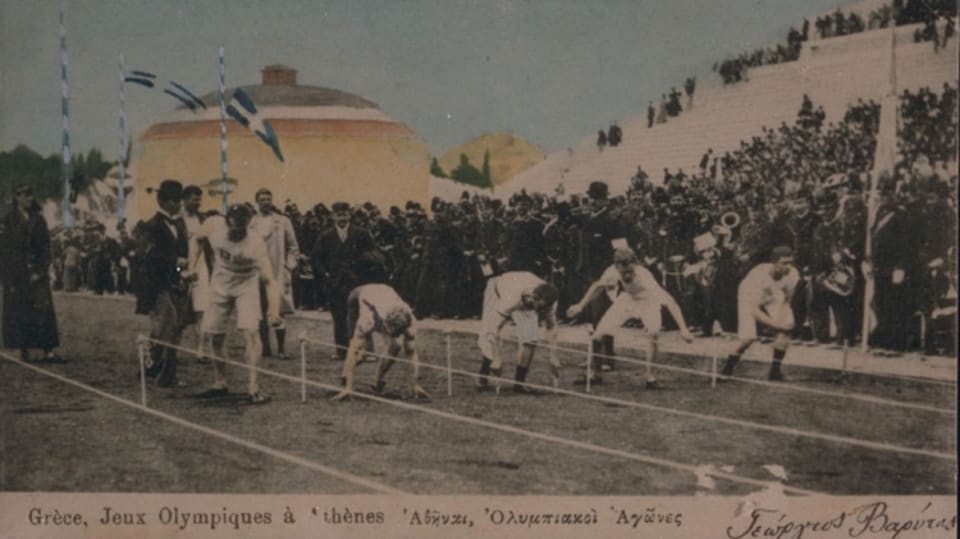Speed merchant Burke shines in the sprint
The 100m has come to be regarded as the “blue riband” event on the track and field programme at the Olympic Games. It was no different in ancient Greece, where tradition had it that the four-year interval, or Olympiad, between each edition of the Games should be named after the winner of the 100m.

So there was great anticipation on the first day of competition in Athens, as athletes gathered for three preliminary heats of the sprint event.
A student at Boston University’s law school, Thomas Burke arrived in Greece with a big reputation as a 400m runner, having won the All-American Universities title over 440 yards in 1895. However, he had no previous pedigree over 100m. Yet he and his fellow Americans Tom Curtis and Francis Lane took the three heats by storm, causing consternation with their distinctive “crouching start” – now standard for sprinters, but then considered wholly unorthodox. Their team-mates’ shouts of “B. A. A.! Rah! Rah! Rah!” in honour of the Boston Athletics Association, initially startled the predominantly Greek spectators who had never before heard organised cheering, but according to Burke’s team-mate Ellery Clark they soon embraced it. “All at once they seemed to grasp the meaning of our effort,” wrote Clark. “We had, by good fortune, chanced to please the popular taste, and the cheer from that moment until we left Athens was in constant demand.”
Burke clocked 11.8 seconds in his preliminary heat. With 40,000 spectators in stadium, and another 60,000 looking on from the surrounding hills, the young American then went on to win the final in a slightly slower time of 12.0 seconds, earning him the honorary title of “fastest man on earth”. He went on to take the 400m title in a time of 54.2 seconds.
Later in his career, Burke focused on the longer distances, and in 1897, inspired by what he had witnessed in Athens, he was one of the founders of the Boston Marathon, which is today one of the most prestigious races on the marathon calendar. He went on to practise law, but also became an athletics coach, as well as a part-time journalist for the Boston Journal and Boston Post.
